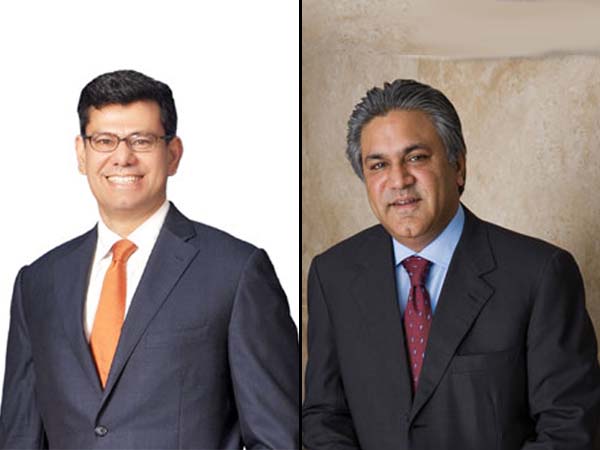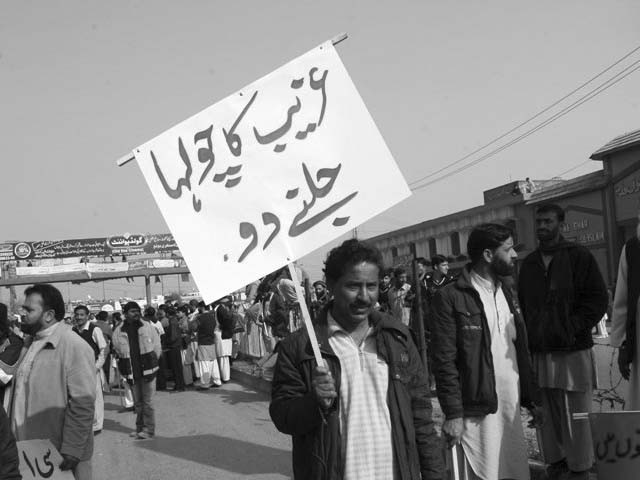
There is more to us than extremism: 10 extraordinary Pakistanis of 2014
Pakistan isn’t an extraordinary country. But Pakistan is a country brimming with extraordinary people. They are not perfect – yet therein lies their beauty. Extraordinary Pakistanis don’t wait for a perfect opportunity, a perfect personality or a perfect external landscape to make an impact.
This is the first insight we stumbled upon after interviewing extraordinary Pakistanis for a series of articles published on our website Extraordinary Pakistanis. Unlike the rest of us, extraordinary Pakistanis aren’t turned off by the problems plaguing this country. Where we see hopelessness, they see problems they can solve. Where we see a failed state, they see a nation waiting to be saved. And where we see escape as the only viable option, they see selfless determination to put things right.
Here is our round up of 10 extraordinary Pakistanis whose stories made an impact on us in 2014:
Haris Suleman – teenage pilot
Haris Suleman is the 17-year-old boy who began his venture to fly around the world in 30 days to raise money for schools in Pakistan, and lost his life to the cause when his plane went down into the Pacific Ocean.
 Haris Suleman after he landed in Pakistan. His single engine Hawker Beechcraft crashed shortly after taking off from Pago Pago in American Samoa. Photo: Athar Khan/Express
Haris Suleman after he landed in Pakistan. His single engine Hawker Beechcraft crashed shortly after taking off from Pago Pago in American Samoa. Photo: Athar Khan/ExpressSuleman was a thrill and adventure seeker like any other 17-year-old Pakistani boy. However, what’s different about him is his sense of purpose and drive to break new boundaries, which is visible from his writing,
“I’m preparing for the biggest adventure of my life; to break the world record by flying round the world in a single-engine plane in just 30 days,” wrote Suleman, before setting out on his journey.
“I will be flying as pilot-in-command with my father Babar, who will only take over the controls in an emergency situation. If we succeed, I will be the youngest person ever to accomplish this daredevil feat. But I’m not just flying to break a world record; I’m flying to raise money for The Citizens Foundation (TCF), a non-profit organisation that is leading Pakistan’s silent education revolution to help educate Pakistan’s poorest children both in urban slums and remote, rural villages.”
Mushtaq Chhapra – founding director and chairperson of TCF
In 2014, The Citizens Foundation proudly achieved a target it set for itself, back in 1995 when it first started, to establish 1000 purpose-built schools all across Pakistan, and make education accessible at grassroots level. TCF is a shining example of hard work, selfless devotion, and conviction – a movement started and nurtured by a team of six extraordinary Pakistanis.
One of these individuals is Mushtaq Chhapra, the founding director and the chairperson of TCF, but more than that, an ordinary citizen silently helping millions of children from slums and rural areas of Pakistan to pursue their dreams and build a progressive future for themselves, their families, and their country.
 Mushtaq Chhapra (C). Photo: File
Mushtaq Chhapra (C). Photo: FileTCF has managed to make a credible identity for itself over the years, attracting donations from all over the world and marking its presence all over the country. But as expected, the ride was never a smooth one. The businessman-cum-philanthropist mused on how the journey has unfolded,
“It has been such an extraordinary ride full of bumps, challenges and criticisms. From the word go we decided we wanted to build 1000 schools – we didn’t want a small target. So many people said we were mad to invest so much money and effort or that it’s impossible,” he said.
“But we felt that a change was needed from within, and on a larger scale in order to impact lives. So we just kept our heads low and continued to follow our vision. The rest is history!”
When asked about what gave him the motivation and strength to continue on, despite the fact that there were no financial benefits for him, he gave a response that is worth pondering over for all Pakistanis,
“The motivation is the gratification when you see someone’s life change right in front of you, and to know that you had some small hand in that. The TCF kids, who probably would never have known life beyond the poverty and difficulties of their households, turn up with stable careers as teachers, doctors and engineers. In that moment, it all seems worth it – and so much more.”
Dr Ishrat Husain – dean and director of IBA
Dr Ishrat Husain shatters every negative stereotype we have of Pakistani leaders today. As dean and director of the Institute of Business Administration (IBA), Dr Ishrat has quietly raised a large amount for the transformation of one of Pakistan’s finest institutions of higher learning. Dr Ishrat throws the full weight of his credibility to build the profile and change the performance of every institution he serves. Prior to IBA, Dr Ishrat ushered in a similar era of transformation as governor of Pakistan’s State Bank, leading an internationally-recognised programme of restructuring there.
“Hard work is number one,” shared Dr Ishrat, as he revealed the drivers of his success.
“There are no short cuts to success. Second, I try to be adaptable and constantly learn new ways of doing things. It’s important to know about new developments taking place in your country and the rest of the world. For example, when I was working at the World Bank, I kept a close eye on the macroeconomic landscape in Pakistan, which gave me a head start when I joined as governor of the State Bank. Meanwhile, most boys and girls today are so narrowly focused on their grades that they don’t even take the time to read newspapers to understand what’s happening around them. This has to change.”
 Dr Ishrat Husain. Photo: File
Dr Ishrat Husain. Photo: FileAhsan Jamil and Arif Naqvi – CEO and chairperson of Aman Foundation
Ahsan Jamil is leading one of the most audacious social transformation initiatives in Pakistan today. As the chief executive officer and one of the founding trustees of Aman Foundation, Jamil is pioneering a constructive model for social change in Pakistan. If you live in Karachi, you would have experienced the blaring sirens of the iconic yellow-coloured Aman ambulances. The ambulance service, which was launched in March 2009, has already conducted more than 312,000 emergency medical interventions.
 Ahsan Jamil (L) and Arif Naqvi (R)
Ahsan Jamil (L) and Arif Naqvi (R)In August 2008, Jamil joined Arif Naqvi to bring Aman Foundation to life.
“In many ways, this was about being a Pakistani and wanting to give back,” Jamil shared. “If we don’t give back, who will? However, none of this would happen without Arif Naqvi making quite possibly the single largest private philanthropic donation in Pakistan’s recent history.”
“Arif didn’t want Aman to be run as an NGO,” Jamil added. “He had a vision for venture philanthropy by running Aman like a private sector organisation and chasing the maximum social return on investment in health and education. Our idea is to build running models in Karachi for various initiatives and then find partners to reapply our successful models in other parts of the country.”
Saad Latif – Acumen Fund Global fellow
If Saad Latif was born in a political family, he could easily become a serious contender for the highest office in the country. Latif has made Pakistan proud by becoming the only Pakistani (and South Asian) to be selected as an Acumen Fund Global fellow for 2015, after competing against 1,200 individuals from 105 countries. Acumen fellows are described as “innovators, game changers and visionaries looking to make substantial change in the world”, but barely anyone in Pakistan knows Latif’s name.
 Saad Latif. Photo: Twitter
Saad Latif. Photo: TwitterHis remarkable journey started in 2007, when emergency rule was imposed in Pakistan and he was thrust in the spotlight as the president of the Student Council at LUMS. A significant portion of the student community wanted to come out and protest but LUMS had no culture or history of mass political student mobilisation – precisely the reason countless parents had trusted the institution with grooming their children in the first place. Latif’s decisions in those fateful days could alter the very fabric and future of one of Pakistan’s leading universities.
As part of his fellowship, Latif will now spend nearly a year in Tanzania where he will work with an organisation that generates electricity from rice husks in rural areas and then possibly bring this model back to Pakistan after his fellowship.
Sarah Adeel – founder of Lettuce Bee Kids
Sarah Adeel set up Lettuce Bee Kids for the children who grow up without having any childhood at all – children who grow up on the streets, in orphanages or in madrassas. In the absence of stable home environments, they grow up to be broken and shunned. She has come up with a creative and unique way to provide a self sustainable space that provides maximum social inclusion to these dejected children and provide them with the upbringing they never had a chance at in their own confined environments.
“We are not a school; there are quite enough of those already. What we are trying to be is that bridge between these kids and schools, which connects them with the existing schools after improving their self-image. Our idea is to give them social acceptance at a young age so tomorrow when we place them in schools, they can adjust better and don’t fall out the next day because they feel they do not belong”, Adeel explained.
 Sarah Adeel. Photo: Screenshot
Sarah Adeel. Photo: ScreenshotWe asked her where she got her inspiration and resilience from, to which she said,
“My single source of both inspiration and resilience are the children I am working with. Once their self-image changes, so do their dreams. After this realisation, there was no turning back for me.”
Adeel’s efforts are truly extraordinary and she has proven that one doesn’t need big resources or plans to help others. Sometimes, smart ideas, innovative collaboration and basic empathy are all you need.
Saad Haroon – The (second) funniest man in the world
When Saad Haroon isn’t putting on a show, you realise that comedy is actually a very serious business for him and the burden of representing Pakistan is a responsibility he doesn’t take lightly.
“It feels good to change the narrative,” said Haroon, referring to how being a Pakistani comedian in the United States forces people to change their view of Pakistan.
“But I try not to over think it. For me, being a comedian is a compulsion. It’s a drug. People enjoy my jokes but I enjoy them having a good time more.”
 Saad Haroon. Photo: Saad Haroon's Official Facebook Page
Saad Haroon. Photo: Saad Haroon's Official Facebook PageIt hasn’t been an easy journey but Haroon has persevered. He created Pakistan’s first improvisational comedy troupe, named Blackfish, which besides being a huge success in Pakistan, was also chosen to represent Pakistan in an international theatre project in Manchester, England. Haroon was also the creator, host and writer for Pakistan’s first English language comedy show, The Real News.
Haroon’s story is powerful on its own but the idea that he represents is even more influential. If a Pakistani comedian can make it big, what’s stopping the rest of us from achieving our dreams, beyond our usual list of excuses?
Imran Sarwar and Aneeq Cheema – founders of Rabtt
Too often we underestimate the importance of empathy and compassion. We find faults in others, criticise them for their behaviour, and often turn a blind eye to their suffering when it should actually be much easier to try to understand and relate. For two fresh graduates, the message was loud and clear. Imran Sarwar and Aneeq Cheema realised that one reason we rush so quickly to our own righteous judgments and assumptions is that we are never wired to react in any other way. And herein lies the problem.
They began to understand that empathy can only come through connection, and through education – if we can see from the eyes and think from the minds of others, we will be less quick in our hatred, bias and indifference. For them, this was a much-needed solution to all of Pakistan’s inter-community, inter-class and ethnic tensions.
 Imran Sarwar and Aneeq Cheema. Photo: Mehreen Ovais
Imran Sarwar and Aneeq Cheema. Photo: Mehreen OvaisThis comprehension inspired them to set up Rabtt – a platform where volunteers and mentors interact with students from high schools in an effort to make their educational experience more holistic, fostering the ability to question, analyse, and empathise with different worldviews.
The spirit of Rabtt – literally meaning ‘connection’, is to weave the threads of empathy through a desire to understand, to analyse and be critical.
“We incessantly build barriers and categories in the society, between the elite and the underprivileged, the educated and the uneducated, the teacher and the one being taught, the others and us. Rabtt is an attempt to understand the ‘other’, to break different barriers we have constructed in the learning space, and consequently in the society. Rabtt brings together students and mentors from different walks of life and creates a space that is conducive to mutual learning and respect”, explained the young founders.
These extraordinary Pakistanis gave us a reason to hope and believe in Pakistan, despite all the negative news going around. We hope to continue to share more inspiring stories next year, building on a narrative which shows to the world – and more importantly to ourselves – that there is more to Pakistan than extremism.






COMMENTS (15)
Comments are moderated and generally will be posted if they are on-topic and not abusive.
For more information, please see our Comments FAQ